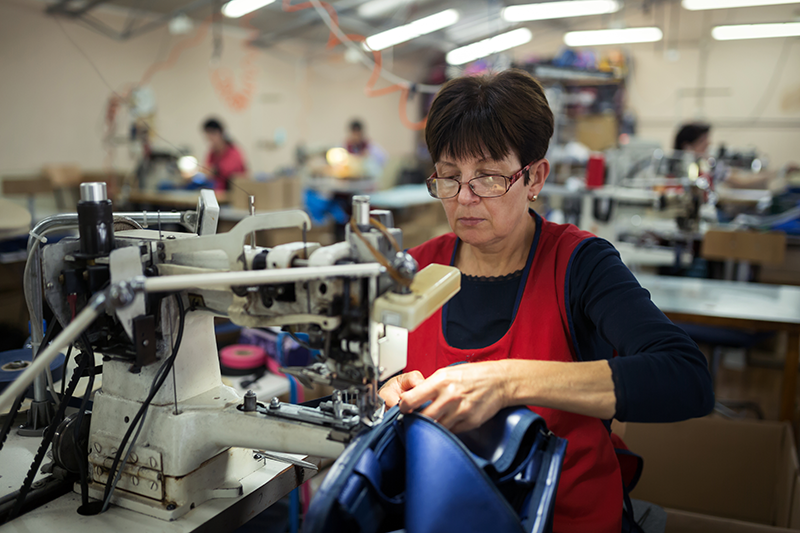
Darba samaksa un ienākumi
Darba samaksa un ienākumi ir būtiski svarīgi darba attiecību un dzīves kvalitātes elementi. Notikumi ekonomikā un sabiedrībā, ko pastiprināja krīze, ES līmenī pievērsa šim jautājumam aizvien lielāku uzmanību.

Eiropas sociālo tiesību pīlārs pauž ES apņemšanos risināt jautājumu par darba algām — darba ņēmēju tiesības uz taisnīgu atalgojumu, kas nodrošina pienācīgu dzīves līmeni; nodrošināt pienācīgu minimālo algu; novērst nodarbinātu personu nabadzību.
Eurofound regulāri ziņo par dažādiem darba samaksas un ienākumu aspektiem, ko ietekmē mainīgie ekonomiskie apstākļi Eiropā.
Eurofound Eiropas Darba dzīves novērošanas centrs (EurWORK) apkopo plašu informāciju par darba samaksu. Tā kā ziņojumi tiek sagatavoti regulāri, ir pieejami vispusīgi novērojumi par norisēm darba samaksas koplīgumu jomā, tādējādi nodrošinot tendenču novērošanu. Eurofound regulāri publicē tematiskos kopsavilkumus par likumā noteikto minimālo algu un koplīgumos noteikto darba samaksu. Tas novēro arī valstu līmeņa notikumus attiecībā uz darba algas noteikšanas mehānismiem, vienlīdzīgu darba samaksu, mainīgu atalgojumu, zemu atalgojumu un vīriešu un sieviešu darba samaksas atšķirību.
Darba dzīves valstu profili sniedz informāciju par valstī noteikto darba algu un tiek regulāri atjaunināti. EurWORK uztur divas datubāzes par darba samaksu (sk. tālāk norādītos resursus).
Eurofound Eiropas Darba uzraudzības centrs (EJM) analizē pārmaiņas nodarbinātības jomā, ņemot vērā dažādus kvalitatīvus pasākumus, tostarp darba samaksu. Proti, tas papildina mūsu zināšanas par nodarbinātības polarizāciju — šķiet, ka nodarbinātības līmenis algu sadalījuma augšējā un apakšējā sektorā palielinās vairāk nekā vidusdaļā.
Eurofound apsekojumos tiek pētīti arī darba samaksas nosacījumi ES. Eurofound pētījumā vērtējot darba kvalitāti, darba samaksa ir galvenais elements. Eiropas darba apstākļu apsekojumā (EWCS) ienākumi ir viens no septiņiem darba kvalitātes rādītājiem. EWCS ziņo arī par vīriešu un sieviešu darba samaksas atšķirību. Izpētiet EWCS interaktīvo datu vizualizācijas rīku.
Eiropas dzīves kvalitātes apsekojumā (EQLS) tiek novērota ienākumu ietekme uz dzīves līmeni un ienākumu nevienlīdzības saistība ar sociālo kohēziju un labjutību. Tajā tiek analizēts, kā krīze ir ietekmējusi ģimenes, īpašu uzmanību pievēršot ģimenēm ar maziem ienākumiem, mājsaimniecību parādiem un nabadzības riska grupām. EQLS arī apkopo informāciju par ienākumiem pensijā un iespējām pagarināt darba dzīvi. Izpētiet EQLS interaktīvo datu vizualizācijas rīku .
Eiropas uzņēmumu apsekojums (ECS) aplūko mainīga atalgojuma sistēmas uzņēmumos, kā arī šo uzņēmumu darbinieku īpatsvaru, ar kuriem noslēgti darba algas koplīgumi. Pamatojoties uz apsekojumu, informāciju par mainīgu atalgojumu un darba samaksas koplīgumiem var saistīt ar informāciju par darba organizāciju, cilvēkresursu pārvaldību, darba ņēmēju tiešo dalību un sociālo dialogu, kā arī ar darba rezultātiem un labjutību darbavietā.






